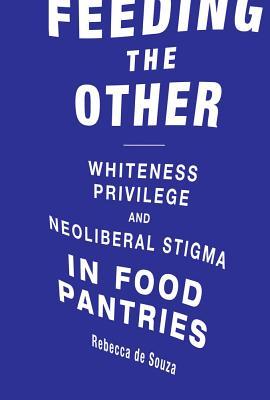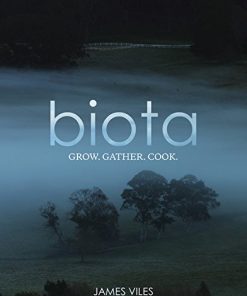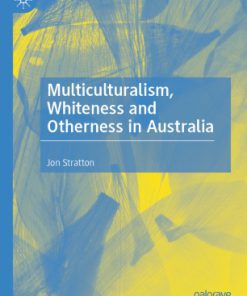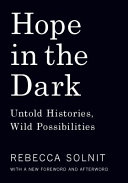Feeding the Other Whiteness Privilege and Neoliberal Stigma in Food Pantries 1st edition by Rebecca 0262352796 9780262352796
$50.00 Original price was: $50.00.$25.00Current price is: $25.00.
Feeding the Other Whiteness Privilege and Neoliberal Stigma in Food Pantries Rebecca De Souza – Ebook Instant Download/Delivery ISBN(s): 0262352796, 9780262352796

Product details:
- ISBN 10: 0262352796
- ISBN 13: 9780262352796
- Author: Rebecca T De Souza
How food pantries stigmatize their clients through a discourse that emphasizes hard work, self help, and economic productivity rather than food justice and equity. The United States has one of the highest rates of hunger and food insecurity in the industrialized world, with poor households, single parents, and communities of color disproportionately affected. Food pantries—run by charitable and faith-based organizations—rather than legal entitlements have become a cornerstone of the government’s efforts to end hunger. In Feeding the Other, Rebecca de Souza argues that food pantries stigmatize their clients through a discourse that emphasizes hard work, self help, and economic productivity rather than food justice and equity. De Souza describes this “framing, blaming, and shaming” as “neoliberal stigma” that recasts the structural issue of hunger as a problem for the individual hungry person. De Souza shows how neoliberal stigma plays out in practice through a comparative case analysis of two food pantries in Duluth, Minnesota. Doing so, she documents the seldom-acknowledged voices, experiences, and realities of people living with hunger. She describes the failure of public institutions to protect citizens from poverty and hunger; the white privilege of pantry volunteers caught between neoliberal narratives and social justice concerns; the evangelical conviction that food assistance should be “a hand up, not a handout”; the culture of suspicion in food pantry spaces; and the constraints on food choice. It is only by rejecting the neoliberal narrative and giving voice to the hungry rather than the privileged, de Souza argues, that food pantries can become agents of food justice.
Table of contents:
1 Introduction: Neoliberal Stigma, Food Pantries, and an Unjust Food System
What Is This Book About?
Neoliberal Stigma
Food, Discourse, and the Political Economy of Stigma
The Entrepreneurialism of Hunger Solutions
A Deer Caught in the Headlights
The Study
Reflexivity in the Research Process
Of Sacred Cows and Trigger Warnings
A Note about Interpretation
The Place
Defining Hunger and Food Insecurity
An Unjust Food System
Legal Entitlements and Entitlement Failure
Industrial Surplus Food
Poverty Governance and SNAP Fraud
Dominant Hunger Narratives
Hunger in an International Context
The Problem with Charity
Rights-Based Perspectives
Chapter Overview
The Hope: Food Pantries as Allies in Shifting the Narrative
2 Key Conceptual Themes
“People Who Do Not Want to Work and Will Not Work”
Stigma and the Political Economy of Stigma
Ideological Formations, Discursive Practices, and Discursive Erasures
Neoliberalism
The Stigma of Poverty and Welfare
Intersectionality: Race, Gender, and Whiteness
Religion and Faith-Based Organizing
Conclusion
3 Voices of Hunger: Making the Invisible Visible
John: The Environmental Chemist
Goal of the Chapter
The Livelihood Toggle: “You Can’t Really Survive on Minimum Wage”
Caring for Children and Grandchildren
Hunger Is Not Just about Nutrition
Jumping through Hoops
Physical Health Issues, Anxiety, and Depression
Trauma
Violet: “I Don’t Know What Kind of Disorder I’ve Got”
The “Buffering Effect” of Social Support
Volunteerism, Not Activism
Conclusion
Policy and Practical Implications
4 The “Good White Women” at the Chum Food Shelf
Lisa and Her Daughter
Goal of the Chapter
Contradictory Discourses at Chum
Institutional Pressures
“Good (White) Women, Basically”
Reaching Out and Breaking the Rules
White Fragility
The Hardworking, the Regulars, and Discourses of Suspicion
A Discourse of Hopelessness
Conclusion
Implications for Practice and Policy
5 Spiritual Entrepreneurs at Ruby’s Pantry
Introduction: Conservative Christian Entrepreneurialism
Ruby’s Pantry–Duluth
Goal of the Chapter
Hard Work at the Thursday Distribution
RP: A Ministry for the Body and Soul
Fracturing of Conservative Christian Ideology at RP–Duluth
Fun and Festive!
“A Hand Up, Not a Hand Out”
Food Surplus and Cost Explained through Spirituality
Poverty Governance at RP
Conclusion
Implications for Policy and Practice
6 A Culture of Suspicion: Making the Invisible Visible
The Queen Is Dead, Long Live the Queen!
Goal of the Chapter
Scarcity Model at the Food Pantry
Reluctant to Complain
Cadillacs and Lincolns: Making Favorable Comparisons
Constructing “Us and Them” at RP
Denouncing “Them”
Suspicious Skin
“White Folks Used to Whip Black People, and … Now They’re Living Together”
Conclusion
Implications for Practice and Policy
7 Health Citizens: Choosing Good Food amid Scarcity
Politics, Public Health, and Citizenship: America’s Harvest Box
Goal of the Chapter
Quantity and Quality of Food at Chum and RP
Meanings of Good Food
People of Color and the Long Arc of Food Injustice
In Context: Good Food Is Safe Food
In Context: Good Food Is “Fancy Food”
Stretching Food and Health Concerns
Making Adjustments: One Bad Potato and Tomato Bisque Soup
Urban-Rural Gardening
Commodity Foods
Conclusion
Policy Implications
8 Conclusion: Imagining a Future for Food Pantries
People also search:
feeding from one breast and pumping the other
why does the other boob leak when feeding
one twin feeding on the other in the womb
what does the bible say about feeding others
what the bible says about feeding others
You may also like…
Cookbooks
Politics & Philosophy
Multiculturalism, Whiteness and Otherness in Australia Jon Stratton
Science (General)
Tensor Calculus for Engineers and Physicists Emil De Souza Sánchez Filho
Hobbies & Games - Bodybuilding
Politics & Philosophy - Social Sciences
Hope In The Dark 1st Edition by Rebecca Solnit ISBN 9781608465767 1608465764
Technique - Food Manufacturing












